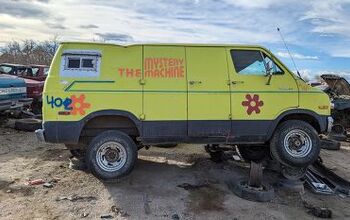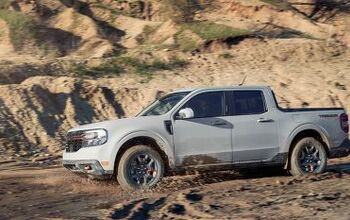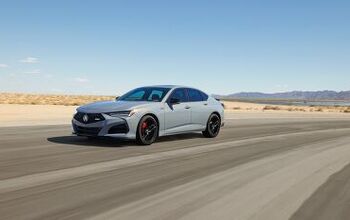FCA Vehicles Top Safety Complaints Study; Lauded Electrics Don't Fare Well, Either (UPDATE)

Update: It was brought to our attention by a spokesperson for FCA that iSeeCars.com’s study includes complaints about parts availability for recall campaigns, which in and of themselves are not necessarily safety issue complaints. These complaints can skew the per-model results in a big way. While iSeeCars works out the data, take the results below with a grain of salt as they will more than likely change. —Mark
Update 2: iSeeCars retabulated the data for the below-mentioned study without recall parts availability complaints and came up with the same top 10 results. Still, the fact remains, not all NHTSA complaints are verified; anyone can submit a complaint, regardless of whether they own said vehicle. In 2010, Toyota ran into problems verifying complaints from NHTSA’s database, and Tesla more recently had issues with one particularly problematic complainer … from Australia.
Safety complaints come in all forms, some of them frivolous, but minor annoyances usually fail to make the attention of the National Highway Traffic Safety Administration.
When all safety complaints leveled against a model are weighed against the volume of vehicles sold, potential customers are left with a clearer picture of what headaches they might expect after signing on the dotted line. Meanwhile, automakers could realize they have a problem to fix.
In a recent study based on NHTSA complaints, one brand showed why quality control is key to keeping a loyal customer base, and how problems in the past can haunt a company for years.
In creating its ranking, automotive data company iSeeCars.com analyzed half a million NHTSA safety complaints for car models manufactured between 2005 and 2016, leaving out vehicles that were no longer in production in that final year.
The model with the worst rate was the Chrysler 300, logging 66.7 safety complaints per 10,000 vehicles sold, followed close behind by the Jeep Grand Cherokee and now-defunct Chrysler Town & Country. Jeep’s Wrangler and Toyota’s Prius ranked fourth and fifth on the list, with complaints amounting to double the industry average of 26.8.
Of the Chrysler 300’s complaints, 18 percent were related to electrical gremlins. The Prius saw its owners complain about exterior lighting, brake issues and acceleration problems 48 percent of the time. Meanwhile, 17 percent of Wrangler gripes arose from the vehicle’s fuel system, with “ gas spraying everywhere during refueling” being a noted complaint.
For Tesla, 18 percent of Model X complaints involved vehicle speed control. Its sedan sibling, the Model S, saw a whopping 42.2 percent of complainants pointing a finger at its suspension. That’s not actually surprising, given a recent controversy.
Even if a manufacturer fixes the issue, a large number of complaints early on in a model’s run can still sink its rating when averaged over time. Statistics, of course, are notoriously cold and uncaring.
Rounding out the top 10 most complained-about models were the Dodge Grand Caravan, Ford Edge, Dodge Charger, Ford Fusion and Nissan Murano. Due to a high number of complaints across multiple models, Jeep ranked first in gripes as a brand, followed by Chrysler in the runner-up position. Technology powerhouse Tesla showed up in the number three spot, while Dodge and Mini came in fourth and fifth.
On the flip side of the coin, a certain Korean company is smiling. The Kia Forte and Soul ranked first and second on the list of best performers, logging just 3.5 and 6.5 safety complaints per 10,000 vehicles sold. The Chevrolet Silverado 1500, GMC Sierra 1500 and Nissan Sentra made up the rest of the top five. Ford’s F-150 came in sixth, tied with the Sentra, with 9.3 complaints per 10,000 vehicle sold.
iSeeCars.com points out the inclusion of three popular full-size pickups on the list could paint an inaccurate picture of the models’ actual complaint rate. Many pickups are bought for fleet use, where a safety complaint will likely end up on the desk of a manager, not the NHTSA. Such vehicles are also more likely to see regular scheduled maintenance.
While those models can boast the most, the Subaru Forester, Lexus RX, Toyota 4Runner and Nissan Rogue each recorded a complaint rate of less than half the industry average. Among brands, Porsche, Subaru, Lexus, Land Rover and Volvo were the least complained-about nameplates.
[Image: Fiat Chrysler Automobiles]

More by Steph Willems
Latest Car Reviews
Read moreLatest Product Reviews
Read moreRecent Comments
- Arthur Dailey The longest we have ever kept a car was 13 years for a Kia Rondo. Only ever had to perform routine 'wear and tear' maintenance. Brake jobs, tire replacements, fluids replacements (per mfg specs), battery replacement, etc. All in all it was an entirely positive ownership experience. The worst ownership experiences from oldest to newest were Ford, Chrysler and Hyundai.Neutral regarding GM, Honda, Nissan (two good, one not so good) and VW (3 good and 1 terrible). Experiences with other manufacturers were all too short to objectively comment on.
- MaintenanceCosts Two-speed transfer case and lockable differentials are essential for getting over the curb in Beverly Hills to park on the sidewalk.
- MaintenanceCosts I don't think any other OEM is dumb enough to market the system as "Full Self-Driving," and if it's presented as a competitor to SuperCruise or the like it's OK.
- Oberkanone Tesla license their skateboard platforms to other manufacturers. Great. Better yet, Tesla manufacture and sell the platforms and auto manufacturers manufacture the body and interiors. Fantastic.
- ToolGuy As of right now, Tesla is convinced that their old approach to FSD doesn't work, and that their new approach to FSD will work. I ain't saying I agree or disagree, just telling you where they are.


































Comments
Join the conversation
Have a 2015 Chrysler 300C Platinum AWD with 46k km on it. Only one minor problem with a faulty shift control module that was replaced under warranty. Had a 12 Wrangler before with only 1 minor issue. Problems with FCA vehicles are overrated IMHO.
If I remember correctly, the Chrysler 300s (and other Chrysler products) that have been recalled all use the ZF "Monostable" electronic shifter. As an owner, I quickly got used to it and never thought about it again, but I can understand how rental car drivers can struggle with this conventional-looking but unconventional-operating shifter system. I don't like the Chrysler fix, which I believe will force "Park" if the door is open, and make it impossible to intentionally creep forward or backward with an open door. My 2013 300S 3.6L has had only a couple of minor issues, none safety-related. I've had the common climate control issue, a failed trunk latch and sensor, and a defective driver's side window seal. The window seal was frustrating because it took Chrysler nearly six months to get a replacement part during which time I couldn't operate the window. The assembly quality of the car is questionable with panel gaps you can stick a finger through, but overall it has been quite reliable and a great car to own. My friend bought a Honda Accord at the same time and has had more issues. My e90 BMW visited the dealer more times most months than the Chrysler has in 4 years.